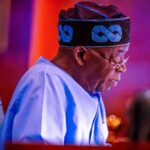Telecom operators in the country have said the last one year has been challenging for them and that the sector is facing one of the worst challenges occasioned by high operating costs which is putting pressure on their operating margins.
They have raised concerns about the sustainability of the sector amid ongoing economic challenges.
Daily Trust reports that the quality of data and voice services has become a big concern for subscribers across the country.
With data depleting as fast as one purchases it, consumers no longer get the real value for data and voice call again. Available data indicate that this issue may persist for the foreseeable future.
Ikemesit Effiong, Chairman of the Technology Committee of the Nigerian Bar Association Section on Business Law, said telecom operators couldn’t sustain ongoing conditions.
In an article titled “The Imperative of Upholding Nigeria’s Telecoms Lifeline,” Ikemesit delves into the sector, emphasizing its pivotal role as both an economic engine and societal enabler. With approximately 15,000 direct employees and a significant 16% contribution to Nigeria’s GDP, the sector’s health is crucial for the nation’s well-being.
Hajj: 1 million pilgrims arrive Saudi Arabia
Highs and lows of Nigerian sports since 1999
“Central to the sustenance of any industry is a conducive economic environment that allows for sustainable growth and innovation,” writes Ikemesit.
However, regulatory constraints that limit tariff adjustments hinder the sector’s ability to adapt to market dynamics unlike other industries.
Describing the challenges of the sector, Engr. Gbenga Adebayo, Chairman of the Association of Licensed Telecommunications Operators of Nigeria (ALTON), said, “ALTON’s members currently pay at least 49 different taxes and levies. Additionally, our members continue to bear the brunt of multiple taxation and coerced compliance with tax and levy demands that have no legal basis by sub-nationals. This threatens investment, sustainability, and industry growth.
“Instances include – exorbitant Right of Way fees, increases under the Finance Act 2023 (such as an upward review of Tertiary Education Trust Fund Tax from 2.5% to 3%, imposition of Value Added Tax on cell towers (Base Stations), imposition of import levy on goods, removal of capital allowance on telecommunications goods and services under Section 32 of the amended Companies Income Tax Act), amongst others.”
He said in the past 10 years, telcos have maintained the same charges for calls and data, despite inflation rising from 8.05% in 2014 to 33.20% in 2024, and the dollar increasing from N185 in 2014 to about N1500 in 2024.
“The telecom industry has also struggled to raise capital and keep up with peak GDP contributions. In 2022, investments in telecoms declined by more than 50% from $753.04 million in 2021 to $399.9 million in 2022. The industry’s GDP contribution dropped by 17.3% to 13.5% in Q3 2023 from 16.06% in Q2 2023”, TechCabal said.
But Gbenga Adebayo, chairman of the Association of Licensed Telecommunications Operators of Nigeria (ALTON), said “It is what it is, the telecom industry is bleeding. As things stand, investors are unwilling to put in money because the economics do not make sense.”
The operators have however accused the Federal Government of neglecting the sector.
ALTON and its counterpart, the Association of Telecom Companies.of Nigeria (ATCON) in a joint statement on Thursday said the FG was attempting to kill the goose that is laying the country’s golden eggs.
ALTON and ATCON called upon the government to take decisive action in addressing the numerous challenges confronting the telecommunications industry.
In the statement signed by Adebayo and the president of ATCON Tony Izuagbe Emoekpere, the two associations underscored the urgent need for collaborative efforts between the public and private sectors to overcome obstacles hindering the sector’s growth and development.
ALTON and ATCON members said they still lack access to essential telecommunication services due to a myriad of challenges, including multiple taxation and regulations and prohibitive Right of Way (RoW) charges, inadequate electric power supply and vandalism of telecommunications infrastructure.
Protection of Assets and Network
They also advocated for legislation that designates telecommunications infrastructure as Critical National Infrastructure (“CNI”).
Both Associations expressed deep concern over the escalating security threats facing telecommunications infrastructure in Nigeria.
“Telecommunications infrastructure undisputedly plays a pivotal role in Nigeria’s national security and socioeconomic growth, especially as the country currently contends with multiple security challenges that require urgent and immediate actions in response to these threats. Attacks on cell towers, fibre optic cables, and other critical assets disrupt telecommunications services and result in significant financial losses for operators”,they said.
The associations urged the government to prioritize the security of telecommunications infrastructure and collaborate with law enforcement agencies to enhance protection measures and combat vandalism and sabotage effectively.
They said despite the adverse economic headwinds, the telecommunications industry remains the only industry yet to review its general service pricing framework upward in the last (11) years, primarily due to regulatory constraints.
They added: “ For a fully liberalized and deregulated sector, the current price control mechanism, which is not aligned with economic realities, threatens the But the federal government said telecom tariff hike was not the solution to the problems facing the telecom companies.
The Minister of Communications, Innovation, and Digital Economy, Dr Bosun Tijani, said in an event in Abuja that tariff hikes are not the sole solution to the challenges in the telecommunication sector of the country.
The minister called for a comprehensive approach solution, rejecting the notion that increasing tariffs alone could resolve the challenges.
“We have to deepen and address so many of these things. The challenges are multifaceted in nature of the sector’s predicament,” Tijani said.
He noted that the government and telecom operators must collaborate closely to enact policies that nurture investment and growth pointing fingers at both government policies and industry associations to chart a path forward.

 Join Daily Trust WhatsApp Community For Quick Access To News and Happenings Around You.
Join Daily Trust WhatsApp Community For Quick Access To News and Happenings Around You.


